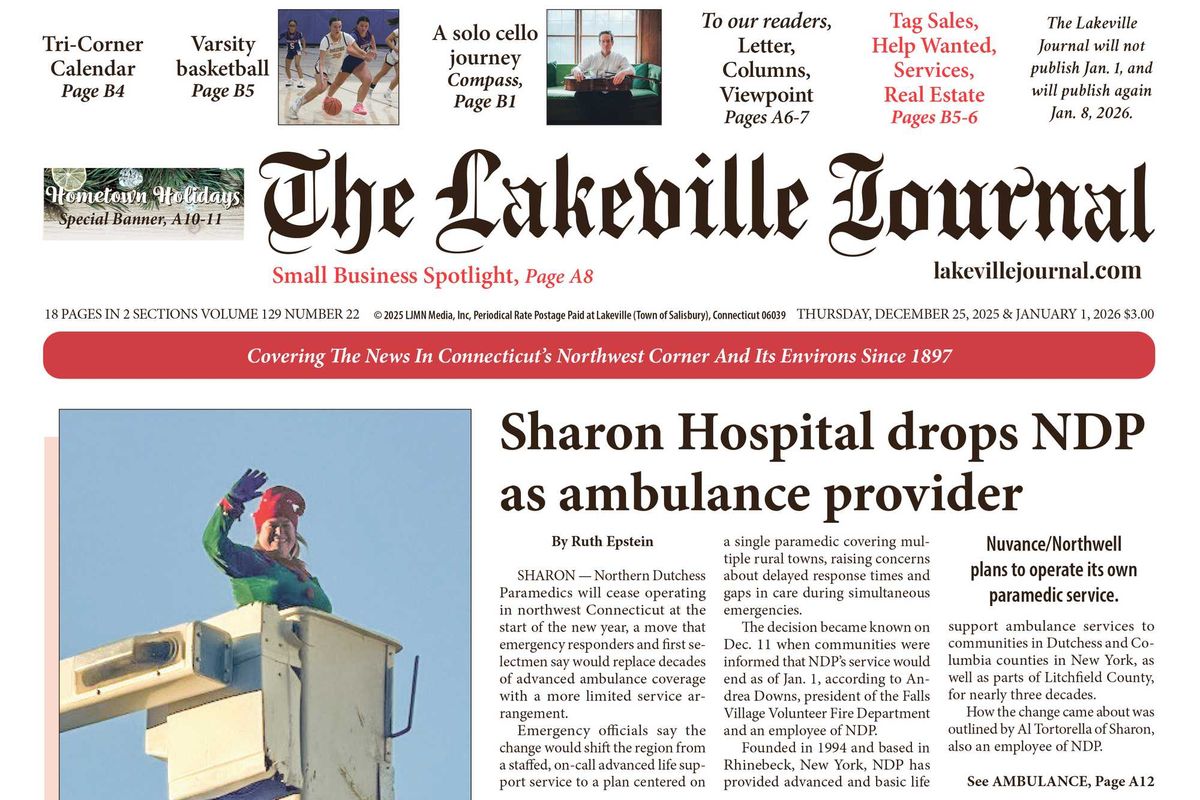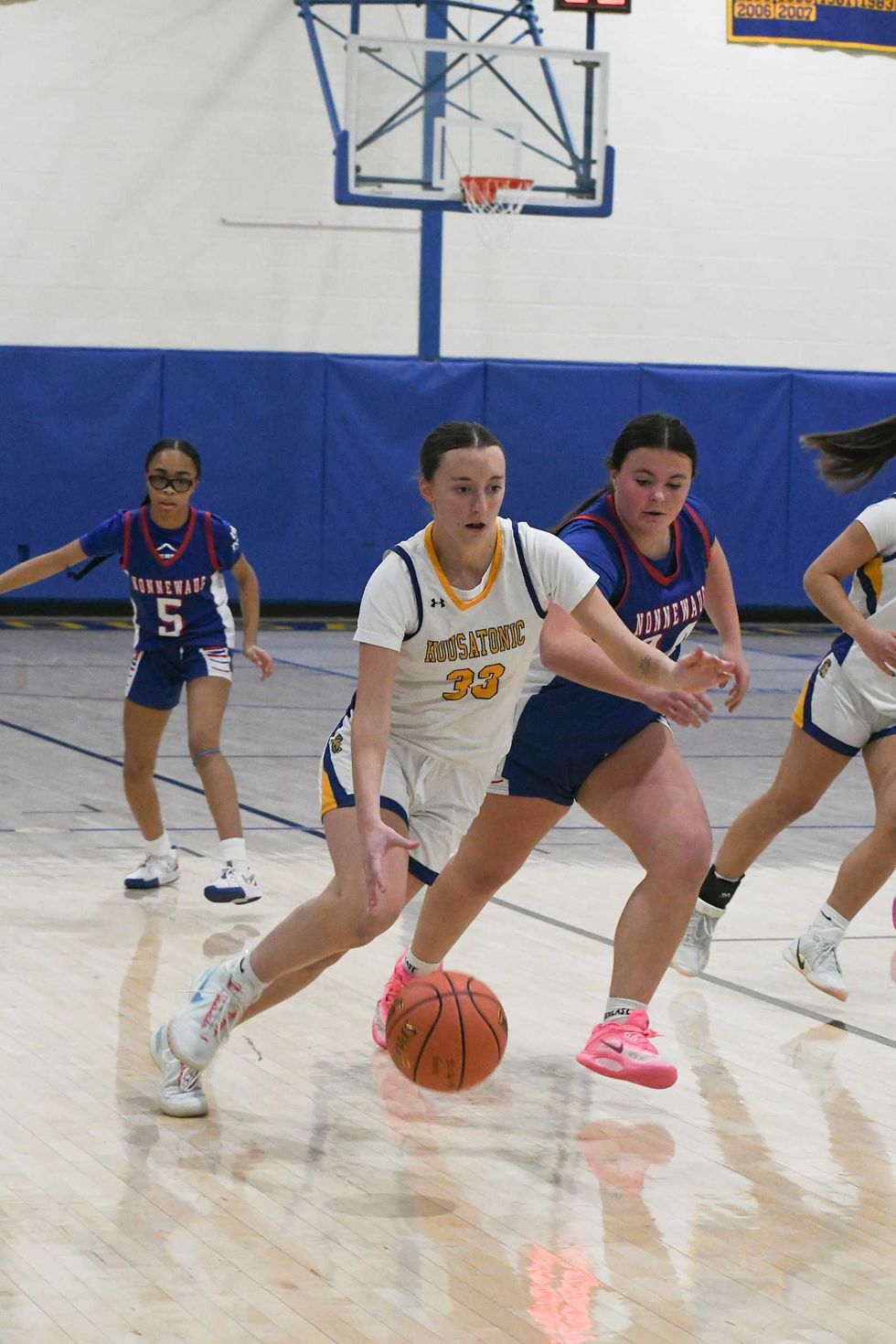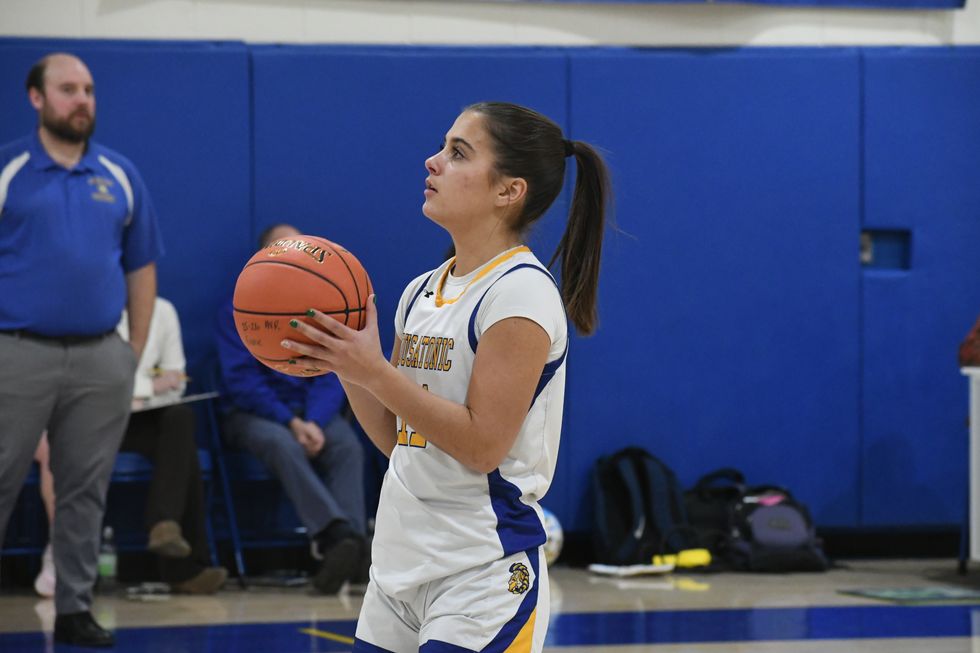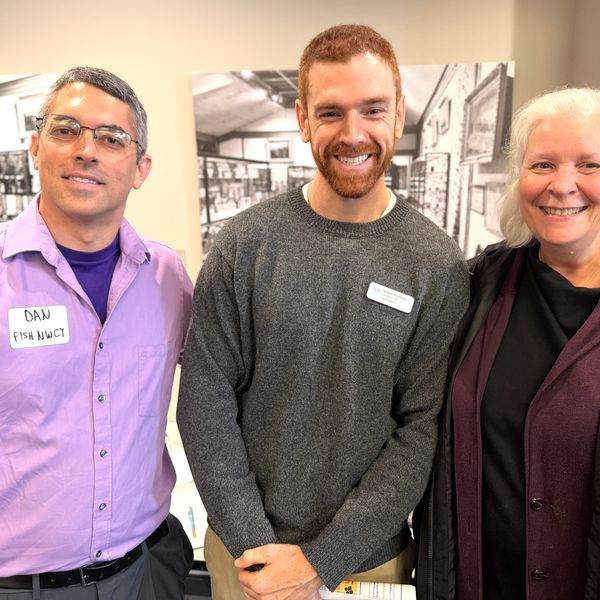Latest News
HVRHS’s Victoria Brooks navigates traffic on her way to the hoop. She scored a game-high 17 points against Nonnewaug Tuesday, Dec. 16.
Riley Klein
FALLS VILLAGE — Berkshire League basketball returned to Housatonic Valley Regional High School Tuesday, Dec. 16.
Nonnewaug High School’s girls varsity team beat Housatonic 52-42 in the first game of the regular season.
The atmosphere was intense in Ed Tyburski Gym with frequent fouls, traps and steals on the court. Fans of both sides heightened the energy for the return of varsity basketball.
HVRHS started with a lead in the first quarter. The score balanced out by halftime and then Nonnewaug caught fire with 20 points in the third quarter. Despite a strong effort by HVRHS in the last quarter, the Chiefs held on to win.
Housatonic’s Victoria Brooks scored a game-high 17 points and Olivia Brooks scored 14. Carmela Egan scored 8 points with 14 rebounds, 5 steals and 4 assists. Maddy Johnson had 10 rebounds, 4 steals, 2 assists and 2 points, and Aubrey Funk scored 1 point.
Nonnewaug was led by Gemma Hedrei with 13 points. Chloe Whipple and Jayda Gladding each scored 11 points. Sarah Nichols scored 9, Bryce Gilbert scored 5, Gia Savarese scored 2 and Jazlyn Delprincipe scored 1.
Keep ReadingShow less
CORNWALL — At the Dec. 9 meeting of the Planning and Zoning Commission, the commission had a pre-application discussion with Karl Saliter, owner of Karl on Wheels, who plans to operate his moving business at 26 Kent Road South, which is an existing retail space.
Saliter said he will use the existing retail section of the building as a mixed retail space and office, and the rear of the building for temporary storage during moving operations.
There will be no external “personal” storage proposed for the property.
The commission decided that Saliter should go ahead with a site plan application under the regulations for “retail stores and trades.”
P&Z also set a public hearing on a proposed text amendment on dimensional requirements for properties in the West Cornwall General Business (GB) zone. It will be held Jan. 13, 2026, at 7 p.m. at the Cornwall Library.
Keep ReadingShow less
FALLS VILLAGE — The Board of Selectmen at its Dec. 17 meeting heard concerns about the condition of Sand Road.
First Selectman David Barger reported a resident came before the board to talk about the road that is often used as feeder between Salisbury and Canaan.
“The person said there is not proper maintenance of that road and it is often the scene of accidents,” Barger said in a phone interview. “There is a problem with the canopy of trees that hang over it, making it hard to keep clear, but there is also the problem of speeding, which is terrible.”
As a former state trooper, he said he is familiar with the problem of drivers going too fast on that road, describing one case in which he had to charge someone for traveling way above the speed limit.
Barger said the town cannot reconfigure the roadway at this time, but officials and road crew members will keep an extra eye on it as a short-term solution.
In other business, Barger said the selectmen plan to call a town meeting sometime next month. Residents will be asked to take the remaining funds, which total $48,200, from the non-recurring capital fund to allow for Allied Engineering to perform engineering studies on the proposed salt shed. Money for construction has already been secured through a STEAP grant, which the town received in the amount of $625,000.
“We’re looking at critical infrastructure projects and this is one component,” he said.
At that town meeting, there will also be a vote to take $2,000 from the town’s discretionary fund to pay Cardinal Engineering for work on repair of the Cobble Road bridge.
Keep ReadingShow less
loading











